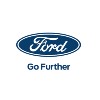Alphabet’s self-driving vehicle subsidiary Waymo may raise outside capital for the first time at a valuation “at least several times” that of Cruise, the General Motors-owned autonomous vehicle business worth nearly $15 billion, according to a report published by The Information on Monday. We’ve reached out to our sources to confirm. Waymo didn’t immediately respond… Continue reading Report: Google’s Waymo seeks outside investment and a sky-high valuation
Tag: Ford
Alphabet’s Waymo seeks outside investors: The Information
FILE PHOTO: A Waymo self-driving car is seen during the annual Google I/O developers conference in Mountain View, California, May 8, 2018. REUTERS/ Stephen Lam (Reuters) – Alphabet Inc’s self-driving car division, Waymo, has been seeking financing from outside investors such as European automakers Volkswagen AG, The Information reported on Monday, citing a person with… Continue reading Alphabet’s Waymo seeks outside investors: The Information
Ford CEO Hackett to employees: 2019 will be turning point
Original Article
Tesla has a ‘sustainable brand’ but moving sales online is a ‘leap of faith,’ says former Ford CEO
Original Article
Lyft lays off up to 50 in bikes and scooters as it gears up for another wave of launches
As Lyft continues to prepare for its IPO, the on-demand transportation startup is trimming staff to cut costs ahead of another wave of expansion. TechCrunch has learned and confirmed that Lyft has laid off around 50 staff in its bike and scooter division, mainly people who had joined the company when it acquired the electric… Continue reading Lyft lays off up to 50 in bikes and scooters as it gears up for another wave of launches
Ford Expands City:One Challenge Program to Austin, Detroit and Indianapolis
Ford Expands City:One Challenge Program to Austin, Detroit and Indianapolis By Brett Wheatley, Vice President of Mobility Marketing & Growth, Ford Motor Company Ford Motor CompanyBlockedUnblockFollowFollowing Mar 7 A few years ago, Saravana “Pat” Bhava was shocked to realize he had driven away from his daughter’s school with an unknown student in the backseat — a student a… Continue reading Ford Expands City:One Challenge Program to Austin, Detroit and Indianapolis
Bollinger Gets Serious About Electric Offroading – EVWORLD.COM – EV World
inFOCUS Bollinger B1: First Serious Electric 4WD By Bill Moore While Rivian has stolen some of the limelight of late, Bollinger is rolling ahead with its production plans to bring zero-emission 4WD motoring to a world urgently in need of carbon-free off-roading. As a young man fresh out of college, I had no car and… Continue reading Bollinger Gets Serious About Electric Offroading – EVWORLD.COM – EV World
In China, automakers forced to adapt to falling sales
Faced with a rapid drop in car sales in China it is an entire industry (manufacturers, equipment manufacturers, dealers) that is forced to adapt to this new situation. The blow is hard for companies that have often invested billions of dollars over the past decade in hopes of taking advantage of the extraordinary growth of… Continue reading In China, automakers forced to adapt to falling sales
Fiat-Chrysler: the twelve works of Mike Manley
He donned the sweater of Sergio Marchione at the death of the handyman of the Agnelli family . At Fiat-Chrysler, it’s Mike Manley who’s been driving since last July . The former boss of Jeep was at the Geneva Motor Show on Tuesday, to explain to the European public with his deep voice and asked… Continue reading Fiat-Chrysler: the twelve works of Mike Manley
AEye Advisory Board Profile: Luke Schneider
We sat down with each of our Advisory Board Members to ask them why they’re excited about working with AEye…
Mr. Schneider was most recently the CEO of Silvercar. Acquired by Audi in 2017, Silvercar has offerings in the rental car segment (Silvercar by Audi), auto dealership fleet management (Dealerware) and vehicle subscriptions (Audi select). Prior to joining Silvercar in early 2012, Schneider served as CTO of Zipcar, the world’s largest car-sharing company. He came to Zipcar by way of Flexcar, the United States’ first car-sharing company, where he served as CTO and VP of Strategy. Schneider conceived and drove development of new products, including the award-winning Zipcar iPhone app, which he debuted during a keynote presentation at Apple’s 2009 Worldwide Developer Conference.
Schneider began his career at Ford Motor Company in 1992. Luke earned a bachelor’s degree in Mechanical Engineering from the University of Texas at Austin and a MBA with specialization in Operations and Strategy from the Tepper School of Business at Carnegie Mellon University.
Q: What in your past experience ultimately drew you to the autonomous vehicle arena?
For the better part of 25 years, I have worked at the intersection of transportation and technology. Starting as a powertrain engineer at Ford Motor Company, and through executive tenures at Flexcar, Zipcar and Silvercar, I have seen the industry begin the most profound, tectonic shift in its 120 year history. You need to do little more than look at the accelerating pace of change in vehicle product development — beginning with the shift from vacuum systems and mechanical linkages, to semiconductors and electronics — to appreciate how dramatically personal transportation is changing. Add to that the evolution of the consumer model, consistent with what we’ve seen in countless other categories (buy what you want, pay for what you need, and do it on your phone), and it’s clear the revolution is not coming, it is upon us!
For me personally, as I seek a convergence point for the many disparate aspects of the automotive ecosystem, I am certain that the future will be indelibly shaped by 4 primary drivers: autonomous, electric, shared, and connected. Of all of those, the one that inspires the most hope, excitement, and wonder is autonomous. Autonomy has the power to all but eliminate 40,000 fatalities per year in the US alone, and hundreds of thousands of injuries. It will make our journeys faster, less stressful, and more enjoyable. And, it will make our ever more crowded cities more livable, walkable, and sustainable. I want to live in a world like that.
Q: Why AEye?
AEye has a fantastic set of technologies that they’ve combined in a new way to deliver breakthroughs in perception. I’m also very impressed with the unique history of the leadership team. They have a tremendous amount of experience with LiDAR from their work in aerospace. It is unusual to find a start up in the United States with this kind of experience, and a team that has worked with LiDAR for decades.
Q: Where do you see ADAS solutions, autonomous vehicles, and/or artificial perception, heading within the next few years? The next decade? Beyond? How do you see AEye playing a pivotal role in this vision?
The first thing anybody notices about AEye is the exceptional caliber of people who comprise the place. They have attracted such a talented, diverse team — and not only scientists, engineers and developers. It’s clear to me that the staff is drawn in by a brilliant central concept at the heart of the company: recasting a daunting problem in an entirely new light.
Successful technology companies take real-world problems, apply fresh, innovative thinking to them, and tum those problems into business opportunities. The rarest of the rare are able to not only conceive and theorize, but also build and grow. It is harder than it looks to take a complicated technology concept and properly characterize it in a way that accurately describes it without oversimplifying it. But, at the same time, to paraphrase Dr. Richard Feynman: “If you can’t explain something in simple terms, you don’t understand it.”
One of the things I admire most about AEye is the way the company lives this statement, commanding the respect of customers, employees, and industry veterans. With its compelling technology case, dedicated team, and vast reach into the expertise of advisors, investors, and customers, how not AEye?
Q: Where do you see ADAS solutions, autonomous vehicles, and/or artificial perception, heading within the next few years? The next decade? Beyond? How do you see AEye playing a pivotal role in this vision?
Already, ADAS is penetrating the automotive world at a pace not seen by any technology in my career. As cars get safer, whole industries change or are disrupted. The auto insurance and car rental industries are obvious early examples. I am excited, encouraged, and hopelessly optimistic about the direction we are headed, led by AEye and other kindred spirits. Besides making personal transportation safer, artificial perception — coupled with machine learning, AI, and a dozen other technologies — will begin to re-shape an industry model that is desperately in need of evolving.
As a society, we have solved the personal transportation problem in the most expensive way imaginable — financially, socially, and environmentally. It may have worked for the first 100 years, but it won’t work for the next. Our cities have become less livable, even as their populations continue to swell.
In this next decade, I believe we will begin to see the first concrete examples of artificial vehicle perception accelerating the pace of change for the benefit of all. Imagine what happens to profitability in the ride share business when the cars can drive themselves. Think about what choices we will have during our morning commutes when our bandwidth isn’t fully consumed in the act of driving. Imagine how much cleaner, more walkable, less congested our cities will be using vehicles equipped with this innovative technology.
AEye finds itself defining, even accelerating, the arrival of this future state. I can’t think of a more exciting place to be (and a better equipped group of people) to make it a reality.
AEye Advisory Board Profile: Luke Schneider — AEye’s iDAR Shatters Both Range and Scan Rate Performance Records for Automotive Grade LiDARAEye Advisory Board Profile: Elliot GarbusAEye Advisory Board Profile: Tim ShipleThe Future of Autonomous Vehicles: Part I – Think Like a Robot, Perceive Like a HumanDeconstructing Two Conventional LiDAR MetricsAEye’s $40M Series B Includes Numerous Automotive Leaders Including Subaru, Hella, LG, and SKBlair LaCorte Named President of AEyeAEye Extends Patent Portfolio, Creating Industry’s Most Comprehensive Library of Solid-State Lidar Intellectual PropertyHella and AEye Extend Strategic Partnership to Deliver Sensing and Perception Solutions for ADAS and Autonomous DrivingAEye Advisory Board Profile: Scott Pfotenhauer

